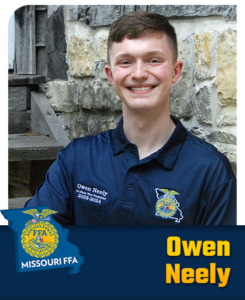
When I was eight years old, my family took a trip to the Rocky Mountains in Colorado. After hours of uneventful driving over the Plains of western Kansas, we were thrilled to finally see the majestic peaks of the Rockies upon arriving at our first stop: Rocky Mountain National Park. As soon as we parked our little camper and took a stroll around the campsite, it felt as if we were enveloped in miles of green forest and striking views, something starkly different than the Ozark Mountains of southwest Missouri. Abundant wildlife was everywhere in sight, from coyotes and elk to falcons and sheep.
After we spent a few days exploring Rocky Mountain National Park, my family loaded everything up into our camper and traveled eight hours to Mesa Verde National Park in southwest Colorado. Although Mesa Verde was very different from the first national park we visited on our trip, it was still an extraordinary place to behold. In the winding rock valleys of Mesa Verde National Park, thousands of adobe houses were built into the sides of the canyons. Hundreds of years before the National Park was established, the Native Americans used earthen bricks and mud to construct these square-shaped houses, which are still standing today.
As the summer heat descended on the plateau where the national park stood, my family decided to take a tour of an adobe settlement to cool off and explore the history of the adobe buildings. During the tour, we were all amazed to see the intricate designs within the houses, as well as how many of them were constructed in the canyon. When it was time to head back to our campsite, the tour guide instructed us that we would be taking a different route. Instead of taking the stairs like we had before, our only way back to the top was a ladder dangling precariously from the canyon.
When I saw the ladder with my eyes, I was immediately filled with fear. Only a weak mesh net stood behind the rungs, meaning that one tiny misstep could lead to disastrous consequences. I was absolutely terrified of heights at that age, and I begged my mom and dad to head back up the stairs we had gone down before. They told me to be brave, and climb up the ladder, even though I’m sure they were a little bit afraid themselves.
Getting on the first rung of the ladder was terrifying beyond belief. What if I stopped mid-climb and couldn’t bear to go any further? What if someone above me halted the entire line of people? What if the ladder snapped in half with the weight of everyone climbing up it? These questions clouded my mind and made it so hard to take the first step. However, with the encouragement of my mom and dad, I kept climbing the ladder that led to the top. There was only one way to get out of the canyon, so I would just have to keep climbing. The sways and creaks of the ladders were hard to ignore, but I tried focusing on taking it one step at a time. Every gradual move had to be an achievement; otherwise, I would not be encouraged to continue climbing.
FFA members, we encounter many of challenges in everyday life, and some of them are more daunting than others. It is my hope that none of us face challenges that rock us to our core, but life is unpredictable in many ways. Regardless of how big our challenges are, the only choice we have is to attack these challenges without fear. Step-by-step, breath-by-breath, and never looking back, we can reach the top of any ladder we are forced to climb.























